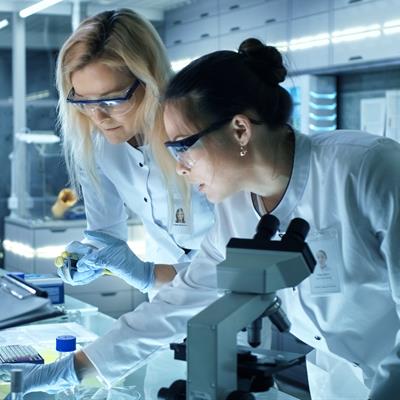October 26, 2022 -- Scientists at the Francis Crick Institute and Imperial College London have developed a new method to study the proteins released by cells, which could lead to the development of new tools to track diseases including cancer.
Biomarkers are highly valuable tools that allow doctors to study biology and disease, but finding these biomarkers is challenging. To help diagnose disease, scientists need to identify proteins that are uniquely made by diseased or cancerous cells but are not released by healthy cells.
In their study, published October 25 in the journal Nature Communications, the researchers describe their method that identifies proteins released by a specific type of cell, even if the cells are in a complex environment with many different cell types.
The team added chemical tags to sugar molecules which were added to the cells. While all cells absorbed the sugar, the researchers genetically modified a specific cell type to add sugar to its proteins. When the cells made these proteins, they remain marked with the chemical tag, allowing the researchers to identify them.
The method uses bioorthogonal chemistry -- or click chemistry -- which was awarded this year's Nobel Prize in Chemistry. One of the prize recipients, Carolyn Bertozzi, PhD, from Stanford University, is a co-author of this study. The chemical tag is selected so that it "clicks" with another molecule that helps the researchers isolate the desired proteins or add a fluorescent tag to them.
The researchers showed that their method, called Bio-Orthogonal Cell line-specific Tagging of Glycoproteins (BOCTAG), worked in cell cultures with multiple cell lines and in mice, where the researchers successfully tagged proteins from specific cancer cells.
This method could also be used in fields such as immunology, infectious disease research, and to better understand disease biology -- particularly how tumor cells change as a result of complex interactions in the body, said Anna Cioce, PhD, first author and postdoctoral training fellow at Crick.
Copyright © 2022 scienceboard.net








